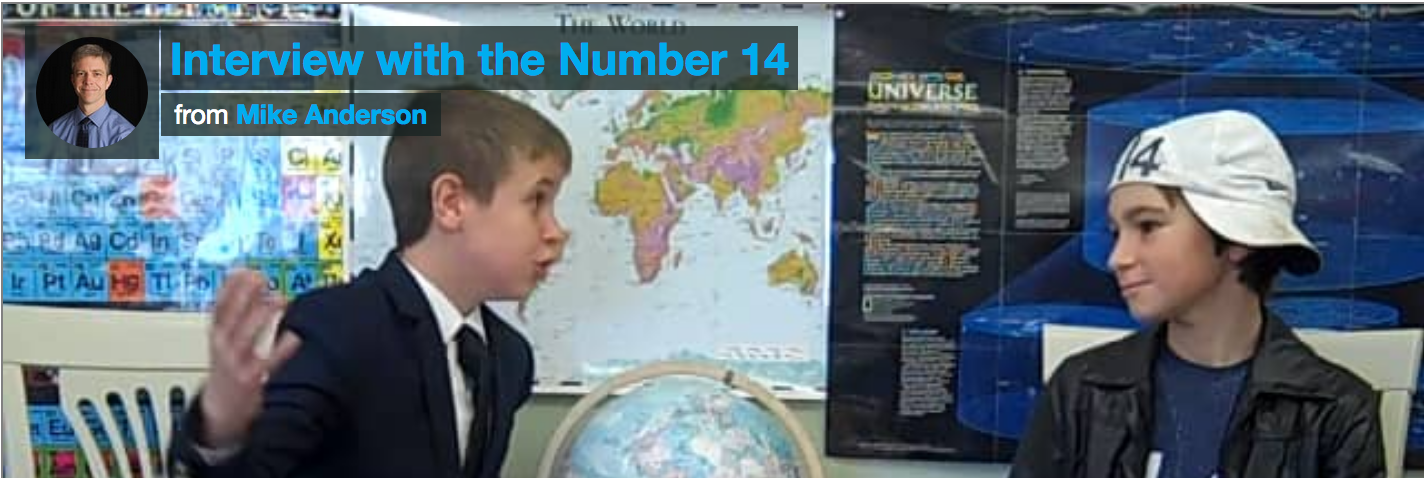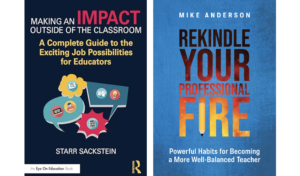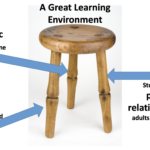Letting Students Make the Choice

Rick Gifford knew that a worksheet where students define words and then use them in a sentence wasn’t the most engaging way for them to learn and practice math vocabulary. He wanted to spruce things up and give his students some choice, but he was struggling to come up with engaging and interesting ideas.
So, he asked his students for help. “Hey, everyone. There’s got to be better ways for us to practice vocabulary. Let’s think of some ideas together. What are ways we could learn these words that would allow you to be more creative—ways that would be more fun?” His students came up with a bunch of great ideas, like crossword puzzles, digital graphic designs, and posters.
One of my favorite ideas was carried out by two boys who really wanted to stretch themselves. They wrote and performed interviews. One of the students pretended to be a number and was interviewed by a host, as if he were a guest on talk show (Meet that Number!). Here’s a snippet:
Host: Who do you like better, two or seven?
Number 14: Why, that’s like choosing between two children . . . it’s impossible! Two and seven are equally important to me. They decide whether I’m abundant, deficient, or perfect. They decide whether I’m prime or composite. I, and only I, have two and seven in my prime factorization. Without two and seven, I wouldn’t exist.
Host: You seem to feel very strongly about this.
Number 14: Well, yes. Everyone should.
As I work with teachers on building more choice into daily teaching and learning, a common lament I hear is, “I want to give my students more choices about their learning, but I have a hard time coming up with ideas!” When this happens, you might consider challenging your class to generate ideas. After all, who better than the students to help you come up with great ideas for learning?
Tips to Help This Go Well
Start small. If your students don’t have lots of experience getting choices about their learning, give them a chance to brainstorm ideas about a small and simple activity. For example, students might think of ideas for how to share the main idea from an article they’ve read. Or, they might come up with topics for a piece of persuasive writing. Later, when they have more experience, they will be ready to brainstorm research topics or bigger project ideas.
Keep brainstorming sessions short. It’s sometimes better to have a few short brainstorming sessions than one long one. This keeps the energy level high and gives students some time to think between sessions.
Recognize that this will get better with practice. If students aren’t used to coming up with fun and creative ideas for their work, they may struggle at first. Don’t be disheartened! Try it again sometime soon so students can build off of their first effort. The more students get to practice the skill of thinking of cool ideas for their work, the more creative they’ll get.
Common Pitfalls to Avoid
Don’t brainstorm ideas if you know what you want students to do. Perhaps you have already thought of the three perfect choices for a particular learning task. Instead of having students generate ideas and trying to lead them to the three you already determined, just give them your own ideas. Save the brainstorming session for a time when students really can come up with their own ideas!
Set clear parameters. If this is a short piece of work—let’s say for just one or two work periods—make sure to be clear about that with students. Sometimes students get excited about great projects that might be way out of the realm of possibility (“I know! We could create a class play and write scripts and create scenery and choose parts!”). Help students stay on track as they consider ideas so that choices generated fit within your logistics and learning goals.
Retain veto power. If students come up with an idea they love and it’s one you know won’t fit—perhaps you don’t have time or the resources to put on a play, for example—it’s okay for you to say no. This is one of the ways we manage student choice so that work continues to be purposeful and productive as we share power and control with our students.
This article first appeared in myTeachSource through ASCD.




